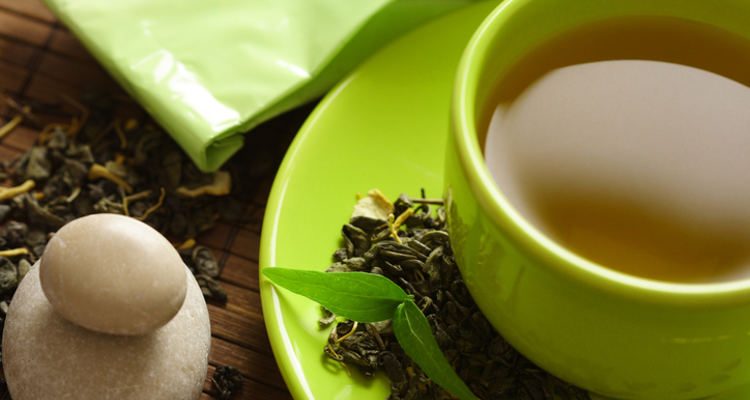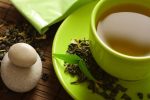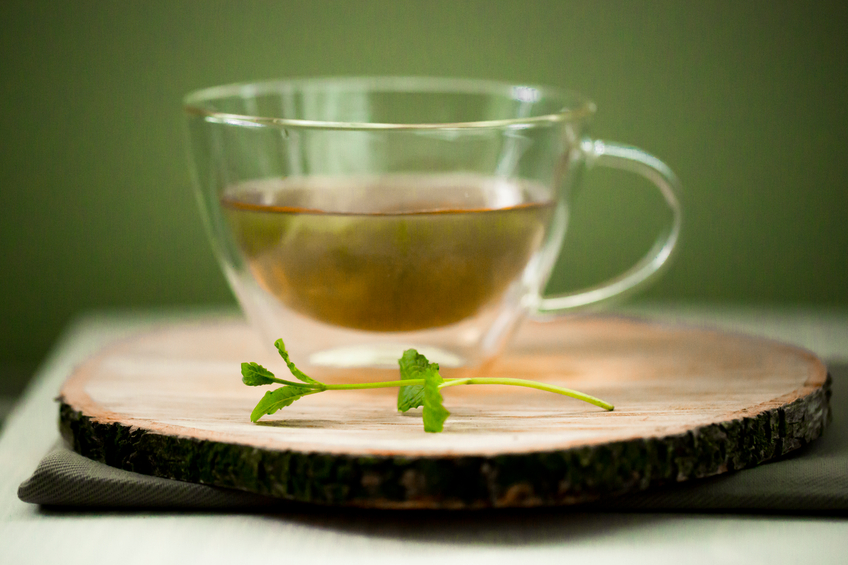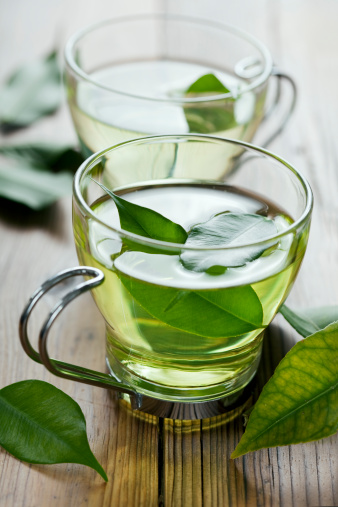
Is Green Tea Really Acidic?
Green tea has long been a staple of Chinese culture, but only in recent years has the Western world truly embraced the beverage and its benefits. Because of this new found fame, there are a lot of questions that revolve around it.
Is green tea acidic? Is green tea healthy? Is green tea acidic or alkaline? How is green tea for acid reflux? There are plenty of health and diet questions that come up once any food product becomes more than just that beverage that they serve you at the sushi restaurant.
Don’t worry! We’ve searched for the answers to many of the questions you may have about how green tea can affect your diet and your health. From its acidic and alkaline properties to what it can do for your health, hopefully, this will answer all the basic questions you have about green tea.
Is Green Tea Acidic? Nutritional Facts to Keep in Mind
One of the main questions that pops up around green tea is if green tea is acidic? So, does tea have acid? One of the first beverages doctors will tell you to avoid if you are trying to lower the acid in your diet is tea.
Green tea comes from Camellia sinensis like black tea, but instead of being dried and crushed, green tea is steamed and dried. Green tea is alkaline. Green tea which is freshly brewed is generally neutral in its pH value. But usually it’s pH value amounts to more than 7.2.
Can Green Tea Help With Acid Reflux?
If you search the internet for information on green tea, you will find numerous articles on the subject of green tea for acid reflux. Gastroesophageal reflux disease (GERD) is when stomach acid backs up into your esophagus.
This can cause heartburn, stomach pain, sore throats, and a bad taste in your mouth. Green tea, while being a low acid tea, does have a few methylxanthines (two more than regular tea) that help relax the muscles of the lower esophageal sphincter and cause acid reflux.
So, green tea might not be the best thing for you if you have GERD. There have been a few studies conducted and most of their results have been inconclusive. There are some studies that show green tea may help soothe heartburn and others that show it may make heartburn worse.
Your best course of action is to consult a doctor if you are having problems with GERD and like green tea. Even if you don’t have GERD, avoid having green tea on an empty stomach. It is better to have it after a meal or in between two meals.
Green Tea Can Help, Just Not with Acid Reflux
While we aren’t positive on how good green tea is for acid reflux and heartburn, there are a number of benefits that do come with green tea. For example, green tea contains many antioxidants (including flavonoids, catechins, and epigallocatechin gallate).
The particular antioxidants found in green tea have widespread uses as some of the have been linked to skin care and aging while a few others are said to be very good for cancer prevention, particularly breast, prostate, and colorectal cancers.).
The catechin compounds may also help to protect the brain from such neurodegenerative diseases as Alzheimer’s and Parkinson’s as well as slow down or prevent strep throat and flu. Antioxidants contained in green tea are also very good for heart health and the cardiovascular system.
Green tea can also be used as a fat burner. Green tea is low on calories (straight green tea is 99% water) and may help some people boost their metabolism, which is a key component of burning fat.
The key here is straight green tea. Don’t add milk or sugar to it as they would be counterproductive to the fat burning. However, this aspect is still under research and the claim that it helps reduce weight lacks conclusive evidence.
Most studies have shown minimal weight loss in obese persons or no difference in weight at all. Having said that, people who have been drinking green tea over the last few years might have benefited over a period of time.
Also, the aspect of adding milk to tea is debatable—some research points out that milk proteins bind with catechins in green tea and inhibit their absorption.
On the other hand, there are scientists who think adding milk in tea also gives you calcium and the binding of proteins does not really hinder the absorption process. So, this too is largely inconclusive.
Green tea may also be good at helping out with type 2 diabetes. Green tea can increase sensitivity to insulin and help reduce blood sugar, both very important things for prevention and keeping diabetes in check.
And as we mentioned before, while there is nothing 100% conclusive, there is some evidence that green tea might be good for heartburn or at least soothing some of heartburn’s symptoms.
The nice bonus of all of this is, when you add up all of these health benefits, you receive a generous overall benefit of a possible longer life span. If it helps you avoid cancer, dementia, diabetes, and helps with weight loss, you could potentially see a better quality of life if not a few more years tacked on to your lifespan.
As you can see, green tea has a ton of benefits to it. In addition to all of the great health benefits, green tea is lower in caffeine than most other teas. It can help with weight loss and possibly get your metabolism running better.
Green tea may even help with easing the symptoms of heartburn, but at the moment there are no conclusive studies that say that green tea will help you with acid reflux. But depending on your system, if you don’t get acid reflux from drinking green tea or it’s not a problem you have in general, the health benefits of green tea might make it something you want to add to your diet.
Related:
- Does Green Tea Make You Sleepy?
- Green Tea Diet: Everything You Need to Know
- When to Drink Green Tea for Maximum Benefits
- Does Green Tea Make You Poop?
- Can Green Tea Prevent Cancer?
Sources:
Gunnars, K. “10 Proven Benefits of Green Tea” Authority Nutrition, https://authoritynutrition.com/top-10-evidence-based-health-benefits-of-green-tea/
Ware, M., “Green Tea: Health Benefits, Facts and Research,” Medical News Today; http://www.medicalnewstoday.com/articles/269538.php?page=2http://www.npr.org/sections/thesalt/2012/09/27/161895873/health-benefits-of-tea-milking-it-or-not















